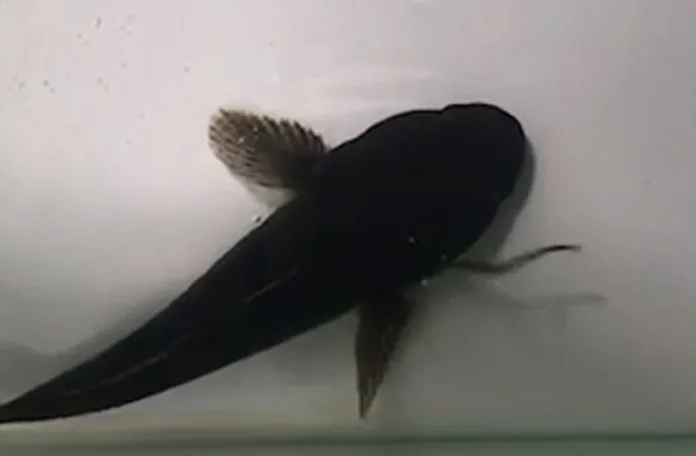A groundbreaking study reveals that Japanese eels can wiggle out of a predator’s gut in under a minute, using an unexpected escape route
In a remarkable scientific breakthrough, researchers have captured the first-ever video evidence of eels escaping from the stomachs of larger fish after being swallowed alive. This unprecedented observation, detailed in a recent study published in Current Biology, reveals a unique survival strategy employed by juvenile Japanese eels.
The study, led by Yuuki Kawabata and his team, utilized advanced X-ray videography to observe these eels’ escape attempts. By injecting the eels with a contrast agent, researchers could track their movements inside the digestive tract of the predator fish, Odontobutis Obscura. This method allowed scientists to see how the eels managed to wriggle free from the confines of their predators’ stomachs.
The footage captured reveals that eels use a remarkable defensive manoeuvre to escape. After being swallowed, they first insert the tips of their tails into the predator’s food pipe and gills. They then pull their heads out, effectively making their way back up the digestive tract. In total, 32 eels were studied, and while all but four attempted to escape, 13 successfully emerged from the predator’s gills, and nine managed to make a full escape.
The average time for an eel to free itself was just under a minute, demonstrating a highly efficient and precise escape strategy. This discovery challenges previous assumptions that eels might exit through the predator’s mouth or gills directly. Instead, they appear to navigate back through the digestive system, showcasing a previously unknown aspect of predator-prey interactions.
The study’s findings are groundbreaking not only for their insight into eel behaviour but also for their implications in the field of predator-prey dynamics. By using X-ray technology, researchers have opened new avenues for observing and understanding similar behaviours in other species.
This research highlights the adaptability and resourcefulness of juvenile Japanese eels, illustrating their ability to survive even in the direst of situations. The application of X-ray methods in studying such behaviours underscores the potential for future discoveries in animal behaviour and physiology.
Analysis
Political
While the study itself doesn’t directly influence political landscapes, the technological advancement demonstrated has broader implications. Countries investing in cutting-edge research technology can benefit from the prestige and scientific leadership it confers. For nations like Japan, known for their advancements in scientific research, such studies reinforce their position as global leaders in innovation. Additionally, the use of X-ray videography in biological research could inspire further investment in scientific infrastructure, potentially influencing policy decisions regarding funding for research and development.
Social
The discovery of eels’ escape behaviour sheds light on the complex interactions between predators and prey, contributing to our broader understanding of animal behaviour. This new insight fascinates not only scientists but also the general public, reflecting a growing societal interest in the intricacies of natural world phenomena. The ability to observe and document such behaviours can enhance educational efforts, providing a tangible example of nature’s adaptability that can be used in science communication and public awareness.
Racial
The study’s implications are global, impacting our understanding of animal behaviour across diverse ecosystems. While the research is specific to Japanese eels, the technology and methodologies used can be applied to a variety of species worldwide. This research encourages international collaboration and cross-cultural exchange in scientific inquiry, highlighting how different regions contribute to a collective understanding of natural processes.
Gender
The field of scientific research, including studies on animal behaviour, is increasingly diverse, with contributions from scientists of all genders. This study, led by Yuuki Kawabata, reflects the collaborative nature of modern science, where diverse teams work together to achieve groundbreaking results. Highlighting the achievements of female and male scientists alike helps promote gender equity in STEM fields and encourages more inclusive participation in scientific research.
Economic
The technological innovation of using X-ray videography in this study exemplifies the potential economic benefits of investing in advanced research tools. Such technology not only facilitates groundbreaking discoveries but also has commercial applications in other fields, such as medical imaging and materials science. By showcasing the practical benefits of high-tech research methods, the study underscores the economic value of continued investment in scientific infrastructure and innovation.
